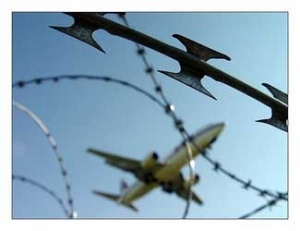WTTC attacks Australian carbon tax

Speaking at the Australian Tourism Directions Conference in Canberra, World Travel & Tourism Council president David Scowsill attacked a carbon tax recently announced by the government.
Australia is now the seventh largest tourism economy in the world and it is set to maintain this position over the next ten years.
International arrivals are continuing to grow – and spending by international visitors in Australia has grown by around a third since 2005.
Chinese visitors are now the highest spending inbound tourists.
Recognising Australia’s commitment to the promotion tourism, Scowsill said: “Australia developed forceful marketing campaigns with a focus on key markets such as China; it has put sustainability at the heart of its offering; and it has promoted open skies to encourage more airlines and lower air fares.
“It has one of the world’s best financed and politically supported public sector tourism structures, but it will need significant investment in infrastructure to keep pace with the long term growth of tourism.”
However, while Australia can be seen as a successful example of sustainable tourism growth there are some challenges ahead.
The short to medium term outlook for the economies in the western world is not ideal.
Continued weakness in demand in Europe and North America will affect some of Australia’s key markets - Europe and USA still account for around 20 per cent of international visitors and 22 per cent of spending.
The Japanese inbound market still has not recovered from the 2005 drop-off, but fortunately the Chinese market continues to grow.
To sustain the current growth in Australia’s tourism industry is that the government needs to understand the intense pressure brought to bear on the industry by the imposition of ever-increasing and ever-diversified forms of taxation.
The new carbon tax that the government is imposing will undoubtedly have a “negative effect” on the country’s tourism industry, argued the WTTC.
Scowsill concluded: “Taxes should not be imposed purely as a revenue generating exercise for the central government.
“The Australian Government already makes $650 million per annum from the Passenger Movement Charge of $47 per passenger.
“It seems counter-productive to unilaterally impose a carbon tax as an additional burden to the industry, as it will mean inevitable price rises for consumers and a consequential dampening of demand for travel.
“I urge the Government to think very seriously about an initiative which would prove damaging to its travel and tourism industry and the wider economy.”
Australian prime minister, Julia Gillard, has made the carbon tax – which aims to cut emissions by 80 per cent by 2050 – the centre piece of her legislative agenda.
The tax will come into force in July next and will require the 500 biggest polluters in Australia to pay A$23 per tonne for their carbon emissions.
From 2015 the price will be set by the market in a trading system.

